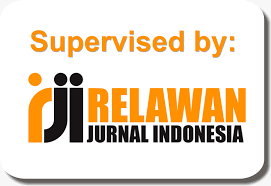The Correlation among Self-Efficacy, Cognitive Strategy, and Students’ Speaking Achievement of Eleventh Graders at SMK Kesehatan Kader Bangsa Palembang
DOI:
https://doi.org/10.52333/djoee.v5i1.587Keywords:
correlation, self-efficacy, cognitive strategy, speaking skillsAbstract
The objective of this study was to find out whether or not there was a significant correlation among self-efficacy, cognitive strategy, and student speaking achievement of students at SMK Kesehatan Kader Bangsa Palembang. 65 eleventh-grade students were involved as the sample, selected using purposive sampling techniques. The correlational method was applied as the research design. Questionnaires and test were used as data collection instruments. To analyze the data, the writer used a correlational analysis to examine the correlation among the variables. The result of the correlational analysis indicated that there was no correlation between the students’ self-efficacy and speaking achievement. The result of Spearman-Brown showed that the value of r-obtained was -0.096, with a significance value was 0.448 and it was lower than 0.5. The results of correlational analysis between the students' self-efficacy and speaking achievement also showed that there was no correlation between students’ cognitive strategy and their speaking achievement since the value of r obtained was -0.030. In conclusion, these results are explained by the fact that there was no significant relationship between the students’ self-efficacy, cognitive strategies, and students' speaking achievement.
References
Alawiyah, T. (2017) The Correlation Between Speaking Self-efficacy And Speaking achievement Of English Education Study Program Students Of Uin Raden Fatah Palembang.
Deli, Markus &GirikAllo, Markus &Priawan, Arnovan. (2019). Students' Self-Confidence in Speaking Skill. JurnalStudi Guru dan Pembelajaran. 2. 1-4. 10.30605/jsgp.2.1.2019.1263.
Desmaliza, D., &Septiani, T. (2017, October). Student's Self-efficacy And Their Speaking Skill At Lower Secondary School. In International Conference on Education in Muslim Society (ICEMS2017) (pp. 122-127). Atlantis Press.
Dodds, J. (2011). The correlation between self-efficacy belief, language performance and intergrationamongschinese immigrant newcomers. Minnesota, MN: Hamline University.
Gaumer Erickson, A.S. & Noonan, P.M (2018), Self-efficacy formative questionnaire. In the skill that matter: Teaching interpersonal and interpersonal competencies in any classroom (pp.175-176). Thousand Oaks, CA: Corwin.
Hamouda, A. (2013). An investigation of listening comprehension problems encountered by Saudi students in the EL listening classroom. 2 (2), 113- 155.
Le, T. M. 2011. An investigation into factors that hinder the participation of university students in English speaking lessons. Ba Ria – Vung Tau University (unpublished thesis)
Lestari, L. P. (2017). Developing English Module for Eighth Grade on First Semester Based on Revision 2016 Of Curriculum 2013 at MTS N Sragen. Repository Universitas Muhammadiyah Surakarta, 8.5. 2017.
Riasati, M. J. (2012). EFL learners’ perception of factors influencing willingness to speak English in language classrooms: A qualitative study. World Applied Sciences Journal, 17(10), 1287-1297.
Pratiwi Wijayanti, A. (2019). A Descriptive Study of Metacognitive Strategies In The English Language Teaching And Learning Process At SMPN 1 Probolinggo2010/2011.Probolinggo.
Paradewari, D.S. (2017). Investigating students’ self-efficacy of public speaking. International Journal of Education and Research, 5(10), 97-105.
Downloads
Published
How to Cite
Issue
Section
License
Copyright (c) 2024 Anggi Anggraini

This work is licensed under a Creative Commons Attribution-NonCommercial-ShareAlike 4.0 International License.







